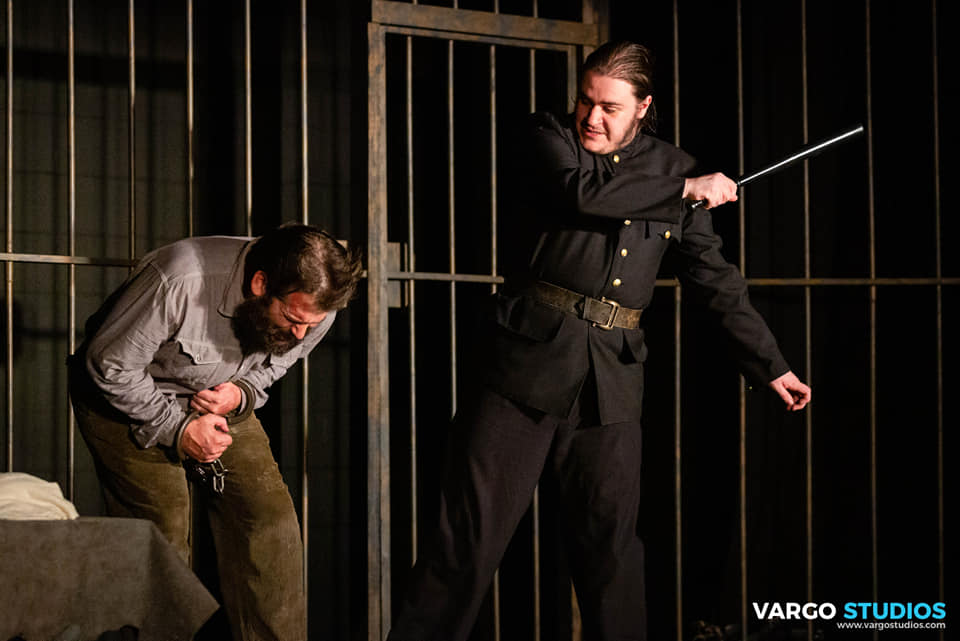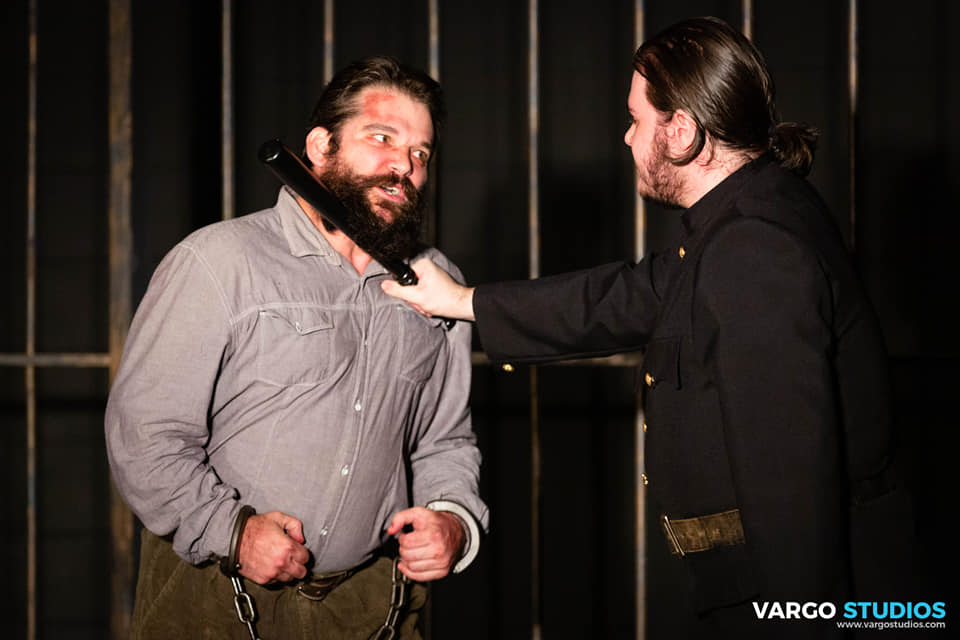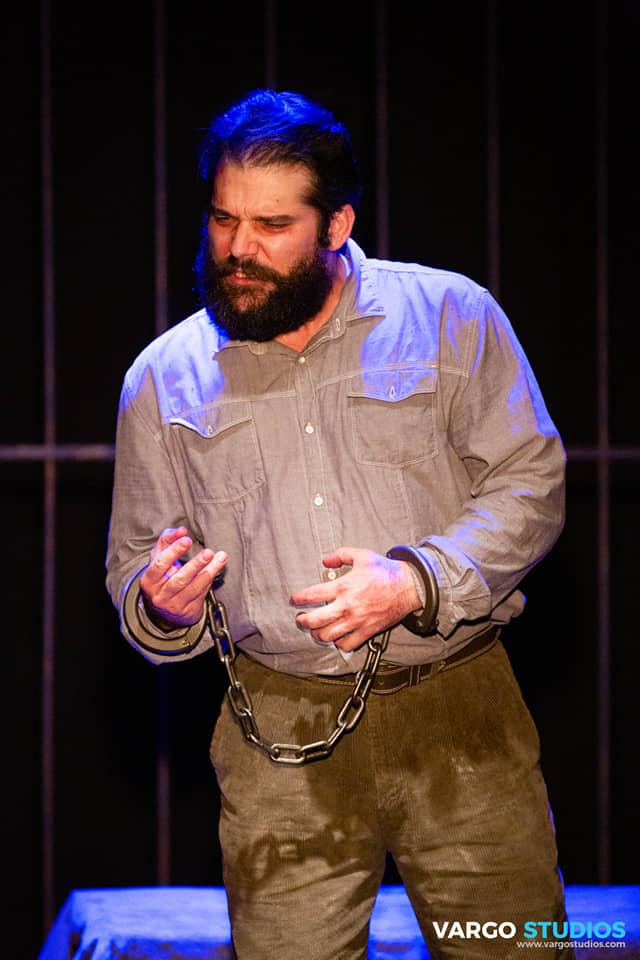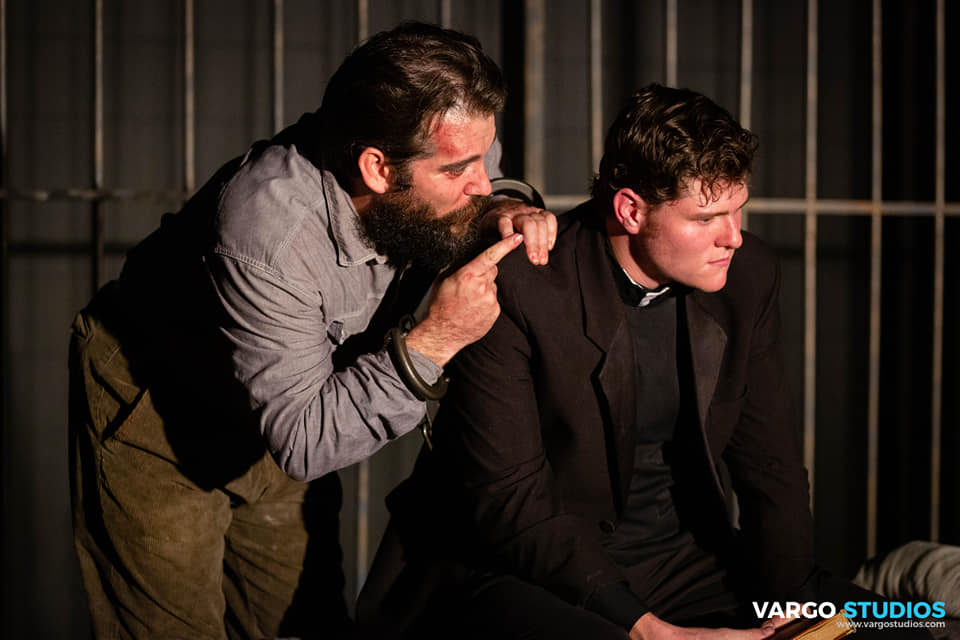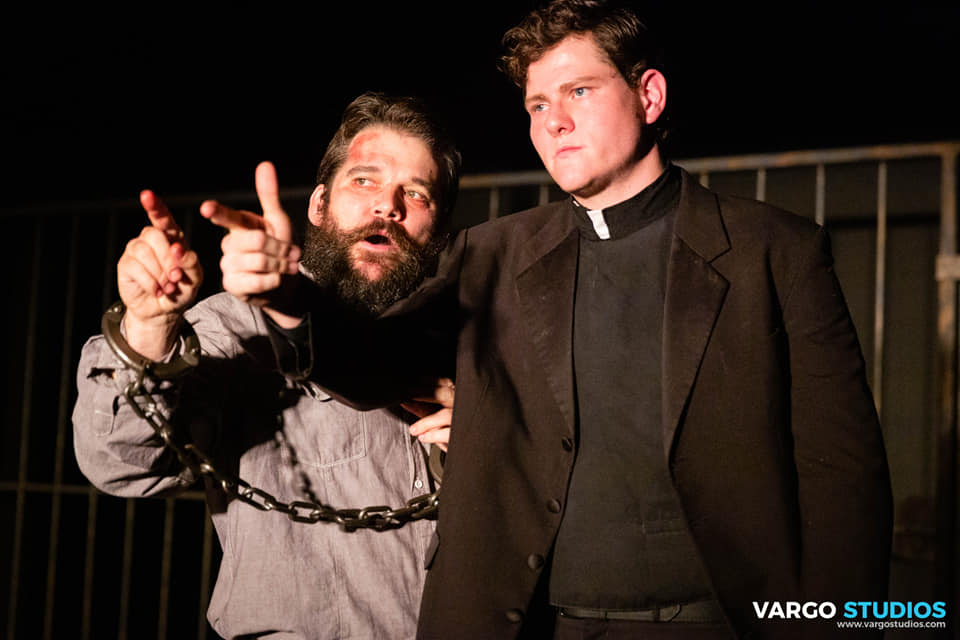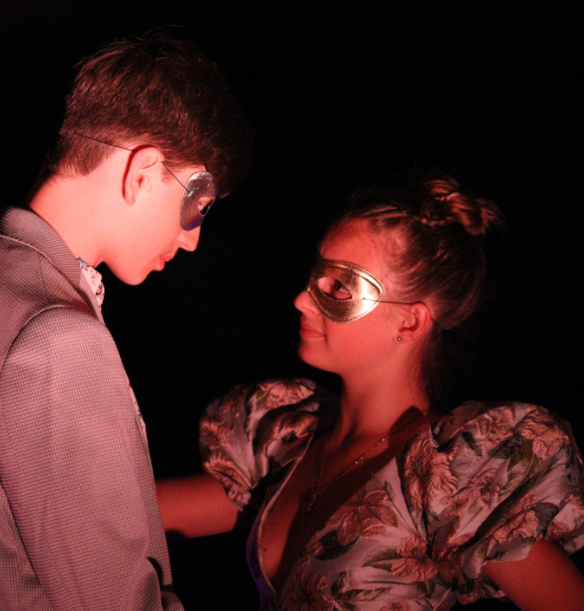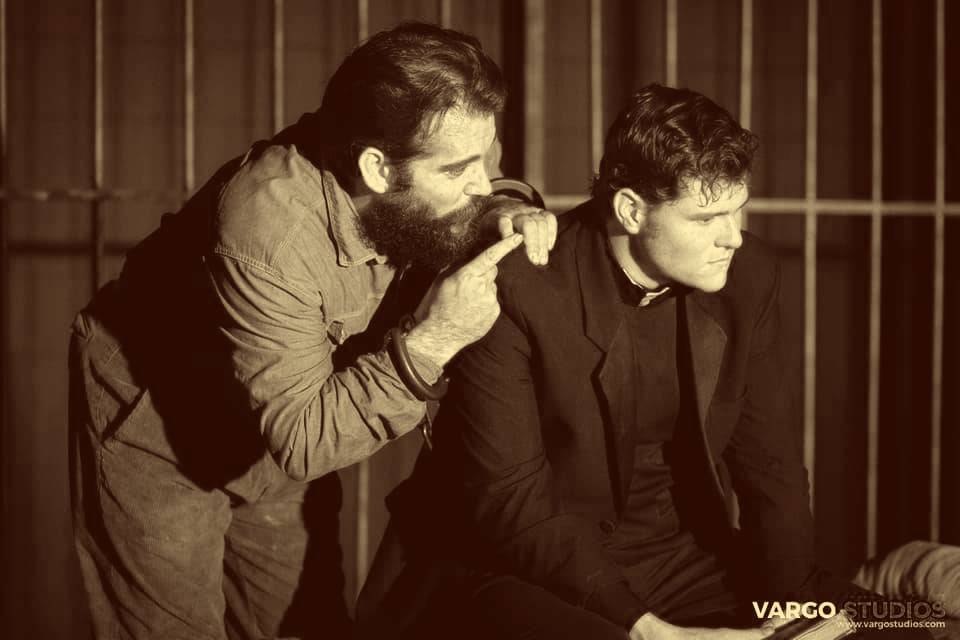
‘Kelly’ // Spotlight Theatrical Company
‘Kelly’ was revisionary.
The Ned Kelly mythos is pervasive in Australian culture and has been for over a century. Indeed, the first-ever feature film was none other than ‘The Story of the Kelly Gang’ in 1905 and since then Kelly and his ilk have remained at the forefront of our collective consciousness.
The challenge of any modern media concerning Kelly, then, is that it needs to bring something new to the story. Difficult, given that this is a story on which students in Australian schools are raised, and that has been told more times in Australian media than any other. On top of this, there are only so many ways one can phrase the underlying question; ‘was Ned Kelly a hero or a villain?’
Thankfully, in his script ‘Kelly’, Matthew Ryan does away with this overused paradox. His Kelly is villainous, but clever, relatable and sympathetic. It’s a version that works well.
In order to avoid the trap of the story we know so well, ‘Kelly’ revises history a little. The play takes place in Ned’s death cell, the night before his hanging in 1880. He is visited by his brother, Dan, whom the authorities believe to be dead, in the guise of a priest reading Ned’s last rites. Historically, of course, Dan Kelly did die at the infamous siege of Glenrowan where Ned was captured, but the historical inversion here is well justified and provides strong foundations for the events that follow.
Dan has come seeking Ned’s forgiveness, so that he may live the rest of his days with a cleaner conscience. Ned thinks Dan a coward and is not prepared to forgive.
That premise sets in motion a tense and thrilling psychological drama that has been crafted with precision by director Cilla Scott. Scott’s interpretation transcends the scripts itself; many of the plays most tense and engaging moments come from the silences, stares and beats rather than dialogue. That’s not to say the script isn’t stellar – it is a magnificent text – but Scott never relies on its laurels.
The two lead actors, Brad Kendrick and Mitchell Walsh as Ned and Dan respectively, bring Scott’s vision to life with a gripping intensity that never falters for a single instance of the ninety-minute story.
Kendrick begins onstage as the audience enters Spotlight’s Basement Theatre. His masterful commitment and focus have audience members on tenterhooks long before the play officially begins. It is so wonderfully disconcerting that attendees were compelled to whisper their bar orders and silently greet one another, unsure if they were even allowed to speak. The team has created an atmosphere that spills from the stage and floods the intimate venue.
Kendrick seems to live and breathe Ned Kelly. He brings to the role a dichotomy of playfulness and churlishness, of optimism and cynicism. He has carefully considered every tactic, movement and even glance across the room, all of which are delivered with enthralling sincerity.
Similarly enthralling is Walsh, who holds his own against the more experienced Kendrick with masterful skill. Some of the play’s best moments are those in which Walsh silently reflects on the life that he seems to wish he’d never lived. It is hard to look away from him, even for a moment.
The play hinges on the push and pull between these two men, their struggle for control and the deep and complex psychology of their relationship, both as brothers and as gang members. In lesser hands, it could have fallen horribly flat, but these are no lesser hands.
Less clear than the characterisation is the decision to give Irish accents to the Australian-born Dan and Ned. The script refers to Kelly’s Irish heritage on a few occasions, so the choice is somewhat justified, but it does stand out as something one must pause and consider. The accents are flawless though, and as a result, one forgets they are even there after a few minutes.
The script itself does take a few liberties with some other revisionist perspectives. These can’t really be discussed without spoiling the events of the play, but it is important to note that these perspectives, whilst not historically accurate, are integral to giving weight and reverence to voices and peoples marginalised throughout history. Australian Theatre must reflect Australian society, and to this end, ‘Kelly’ is subtle and necessary.
A pervasive discourse around Australian theatre by theatre-going crowds is often that Australian works are somehow ‘lesser’ than texts from other cultures. That somehow our work doesn’t have the gravity or sophistication of Chekov, Ibsen or Miller. What this discourse fails to address is the uniqueness of theatre from this country. Australian Theatre is a distinctive genre unto itself, and one that deserves prominence on a global stage.
‘Kelly’ is a raw piece of real theatre. It is not glamorous. It is not fun. It is damn good.
‘Kelly’ runs through to Saturday, 5 October 2019. Tickets are available at Spotlight Theatre’s Website.




